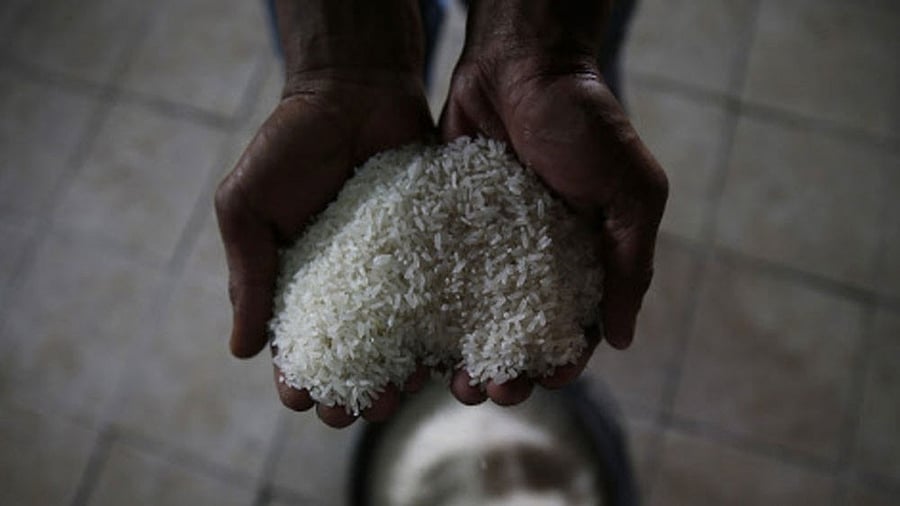
Representative image of rice.
Credit: PTI Photo
New Delhi: The Indian Council of Agricultural Research’s claims on two genome-edited rice varieties are not supported by scientific evidence, a non-governmental organisation alleged on Thursday, after analysing ICAR’s own trial data on the two varieties.
The NGO, Coalition for a GM-free India, said it has exposed a “scientific fraud” as ICAR didn’t generate data on some of the claims at all while for others only a very limited data set was available.
The ICAR denied the charges, terming the allegations "baseless" and motivated by an "anti-development agenda that undermines the achievements of Indian scientists".
The claims are related to two genome-edited rice lines called Pusa DST-1 and DRR Dhan 100 Kamala that Union Agriculture Minister Shivraj Singh Chauhan released in May. The varieties were recommended for release in 14 states including Karnataka.
The two genome-edited rice came with a promise of 19% increase in yield; 20% reduction in greenhouse gas emissions; saving of 7,500 million cubic meters of irrigation water and improved tolerance to drought, salinity, and climate stresses.
While the apex farm research council cited higher yield and improved salinity tolerance as some of the attributes of the new varieties, the data paints a different picture altogether, says the NGO.
On the Pusa DST-1 variant, it quoted 2023 trial results that said data was unavailable due to limited seed quantity.
“Since sufficient quantity of seeds for the target trait evaluation viz. drought and salt tolerance are not available for both genome edited lines, assessment of target trait is not done in Kharif 2023,” the Coalition said, quoting the ICAR annual report.
Next year (Kharif 2024), inland salinity tolerance was tested in only three sites in two zones. “Result from only one season are being used to draw conclusions,” it said.
For coastal salinity tolerance tested in three zones, the data showed the gene edited line has no superiority in any zone. “For coastal salinity, the report concludes that Pusa DST-1 failed to register yield superiority in any zone. However, in the summary table, a 30% yield increase is shown,” it said.
The NGO, citing ICAR’s published annual reports, has claimed Kamla under-performed in eight of 19 trial sites in 2023 and eight of 14 sites in 2024. The mean yield increase across the 14 sites is 2.8%, but a summary table shows 21% based on selective sites, it claimed.
It has also questioned the assertion about early flowering, saying ICAR data show Kamla’s mean flowering time was 101 days against its parent’s 104 days, and that in some zones Kamla actually flowered later.
ICAR, however, said both varieties were rigorously tested at over 24 locations under All India Coordinated Research Project, the nodal agency for rice variety evaluation since 1965.
"There was neither premature release of either of the genome-edited rice varieties nor their testing results were 'rigged and hyped'. All the protocols and standard operating procedures prescribed by the Central Sub-Committee on Crop Standards, Notification & Release of Varieties under the Seed Act (1966) have been, and are being, strictly followed," ICAR said.
